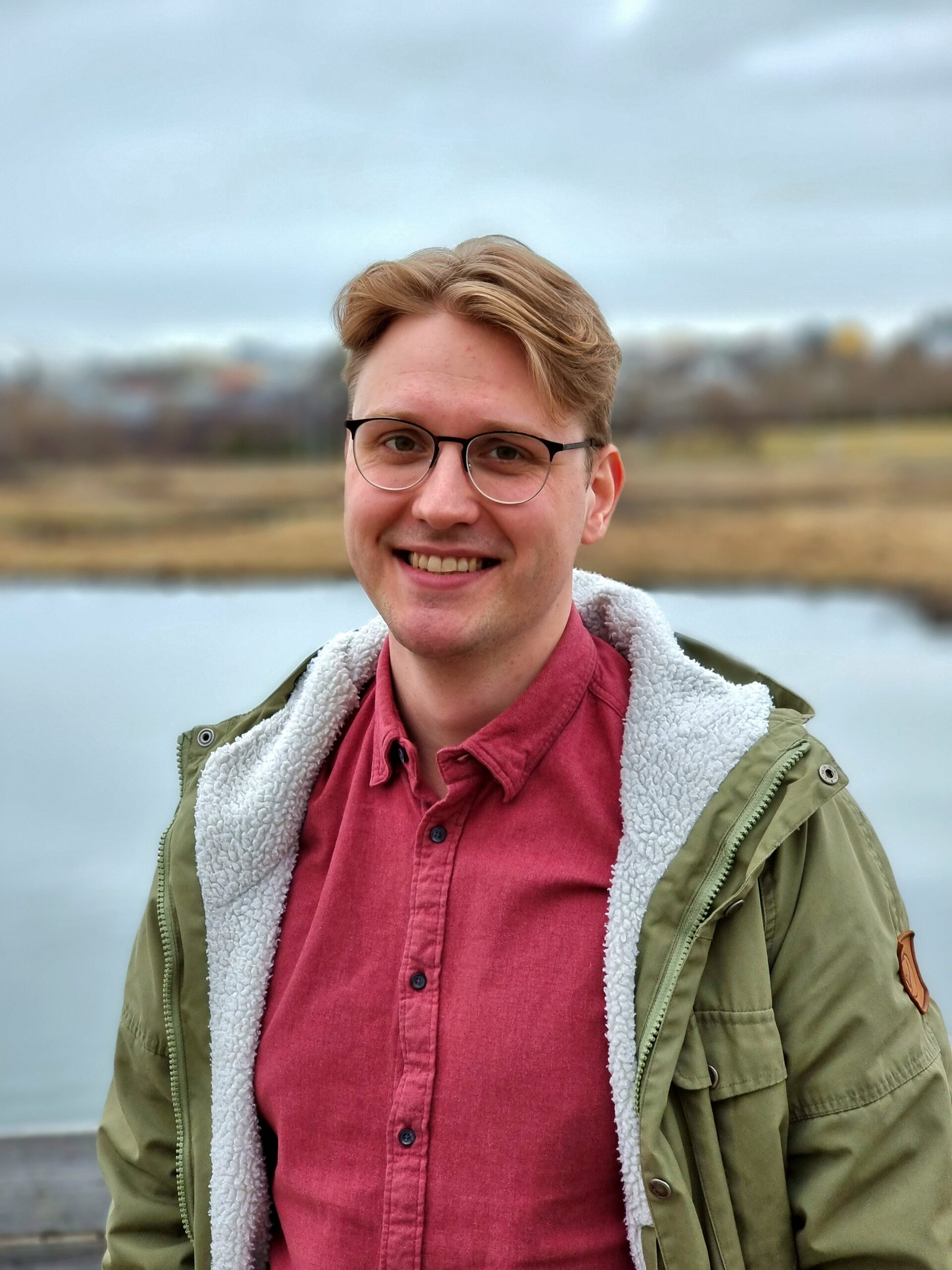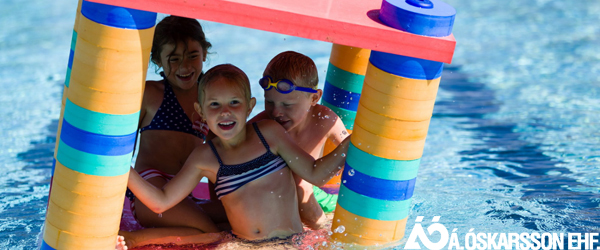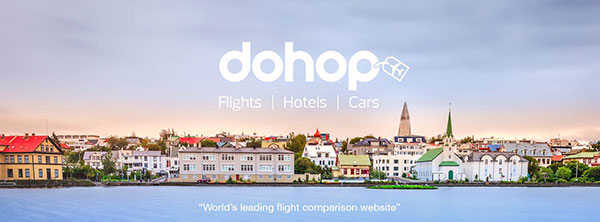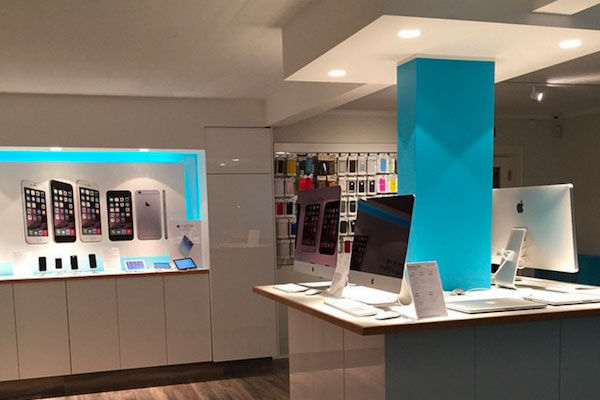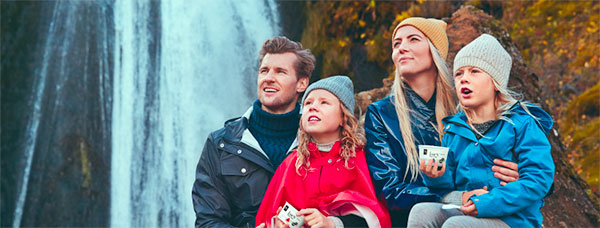The top issues facing Iceland’s National Queer Organization (Samtökin ‘78) and the queer community and how the new chair person of Samtökin ’78 intends to tackle them.
Elected recently as the chairperson of Iceland’s National Queer Organization (Samtökin ‘78), Álfur Birkir is ready to tackle the biggest problems of the day. From microaggressions to budding legislation and a new building for the organization, he says there’s quite a lot in need of change. GayIceland caught up with him for an exclusive interview to the queer community to see what kind of leader we’ve elected and where the organization is headed.
Get to know Álfur
With a background in data, biology, and nature, Álfur is definitely one of the most cerebral chairpersons to lead Samtökin. A brainiac with a kind presence and the heart of an advocate, Álfur is hoping to jump back into the leadership team of Samtökin to address the most pressing issues facing our community. With the world seemingly on fire and gay-bashers running around Iceland, there’s a lot to do.
Although Iceland is held up as a utopia of queer rights, our community knows that not to be the case. Protections for our trans, nonbinary, and intersex siblings have vastly improved with the gender autonomy act, but there are still plenty more improvements to be made. Álfur recently noted this on his Twitter well. “There is much that can be done better in regard to queer matters and I hope that the action plan that will be discussed in Parliament today will be taken up quickly. If we are going to get out of 14th place on the rainbow map, we need to get to work.”
Álfur previously served on the board from 2016 to 2018. Since then he’s stayed involved and Samtökin has continued to grow. “Back then we only had one and a half employees, now we have four. So today the board is doing a lot more planning for long-term goals and less of the practical stuff day to day. Coming back now it’s amazing to see how little resources we had back then compared to what we have now,” he says. “We’re growing, so that’s great!”
“I mean even in interviews here in Iceland one of the most common questions is always “isn’t Iceland just queer paradise?” or something like that. In a way, it’s kind of a microaggression.”
Samtökin’s previous chairperson, Þorbjörg Þorvaldsdóttir, led the organization with a strong focus on education. With an eloquent touch, she was able to articulate and teach broader society about queer issues while advocating for progress. When asked if Álfur plans to lead with a similar style he says “definitely. A lot of people just don’t realize how big our community is. How complex it is, how diverse it is. And also how normal we are.” In his view, the queer community is a large mix of many people all fighting for their place in society. “This kind of education is just fundamental in getting people to accommodate our needs. We are just people, we just have slightly different needs. I’m just a person and I’m just a part of society. Knowing these pressure points is really important for people to accommodate and for us to find our place,” he says.
Pressure points come in all shapes and sizes though. True, Iceland is quite ahead of the game culturally, but we’re still lacking some of the protections that guarantee the queer community’s safety and well-being. Álfur thinks these pressure points are a good place to start and that they show how far behind we really are.
Can we please stop saying Iceland is a queer utopia?
In his experience, Álfur says these pressure points show up very subtly but they can add up to crossing a line. “The term microaggression really relates here the most. There are all kinds of tiny things that are ehhhh… a little bit annoying but at some point someone steps over the line and it’s just a tiny step but you get angry. Those are the pressure points. Asking a gay guy if they know some other gay guy just because we’re gay and you’re like no, no I don’t know him. All gay guys don’t know each other.” We also don’t all watch drag race, say “slay queen,” and work as hairstylists or baristas, but these microaggressions can be more than just stereotypes.

Then there’s the straight, cisgendered folks just assuming the fight for LGBTQIA+ rights is finished. Although we scored a huge victory with marriage equality, there’s plenty more that we need to push for. Álfur says that this even came up when he was running for the chairperson position and being interviewed by other media outlets. “I mean even in interviews here in Iceland one of the most common questions is always “isn’t Iceland just queer paradise?” or something like that. In a way, it’s kind of a microaggression. Like “no, why do you think I would be here advocating if we were just happy-go-lucky, everything is great?!”
There are not-so-micro aggressions the community faces as well. “Of course, it’s an understandable question, and they mean well. But, just sometime last year there were people calling themselves the gay killers going around sending messages that they were going to bash people. Like no, there’s still a lot of progress to be made,” he continues.
Although society at large might not get the full picture of what we go through, Álfur says “it’s healthy to have to unpack this with them, packaging our own reason for still being here and telling them what we want. It’s a double-edged question. The community knows the truth, but society doesn’t necessarily. They just think the fight for our rights is done.”
He continues. “We’re doing really well with society. Society is relatively open. I think we’re around the top on the European scale in that view. But we need more legal protection with for example hate crimes. Or for protections in the workplace.” This kind of work is also so we don’t regress into old notions of discrimination and prejudice. “I mean most Icelanders would ask why we need these protections if they personally don’t discriminate. But society can change really quickly and we need laws to solidify these things and make sure we don’t lose progress and our rights if society changes. So we don’t go backward,” he says.
“I mean most Icelanders would ask why we need these protections if they personally don’t discriminate.”
Álfur also mentions how these microaggressions “can just all add up together to this feeling of a society where you’re not quite as welcome as everybody else. For the general public, I don’t think there’s something like “this is the thing we hate now” kind of backlash. There’s some systemic stuff going on and then there’s an element of education so that people understand what things are ok to ask about and what things are not.”
Speaking of things that are not ok to ask, Álfur says he always remembers the one time “Ugla (a vocal trans activist) was stopped in the fruit cooler in Bonus (grocery stores in Iceland) and someone asked “how far have you been with your transition?” And it’s like, “uh… are you asking me about my genitals? In Bonus?” That’s the kind of stuff we get. Sure, they’re just being curious but do you need to act on that curiosity? Sometimes just let people live their lives!” he says.
Is the trans community well represented by a cisgendered chairperson?
Álfur is also hoping to represent the trans community well and do right by them. In the race for chairperson his competitor was Arna Magnea Danks, a trans woman. If she won, she would have been the first trans chairperson for Samtökin ‘78 at a time when trans rights are on the top of the agenda.
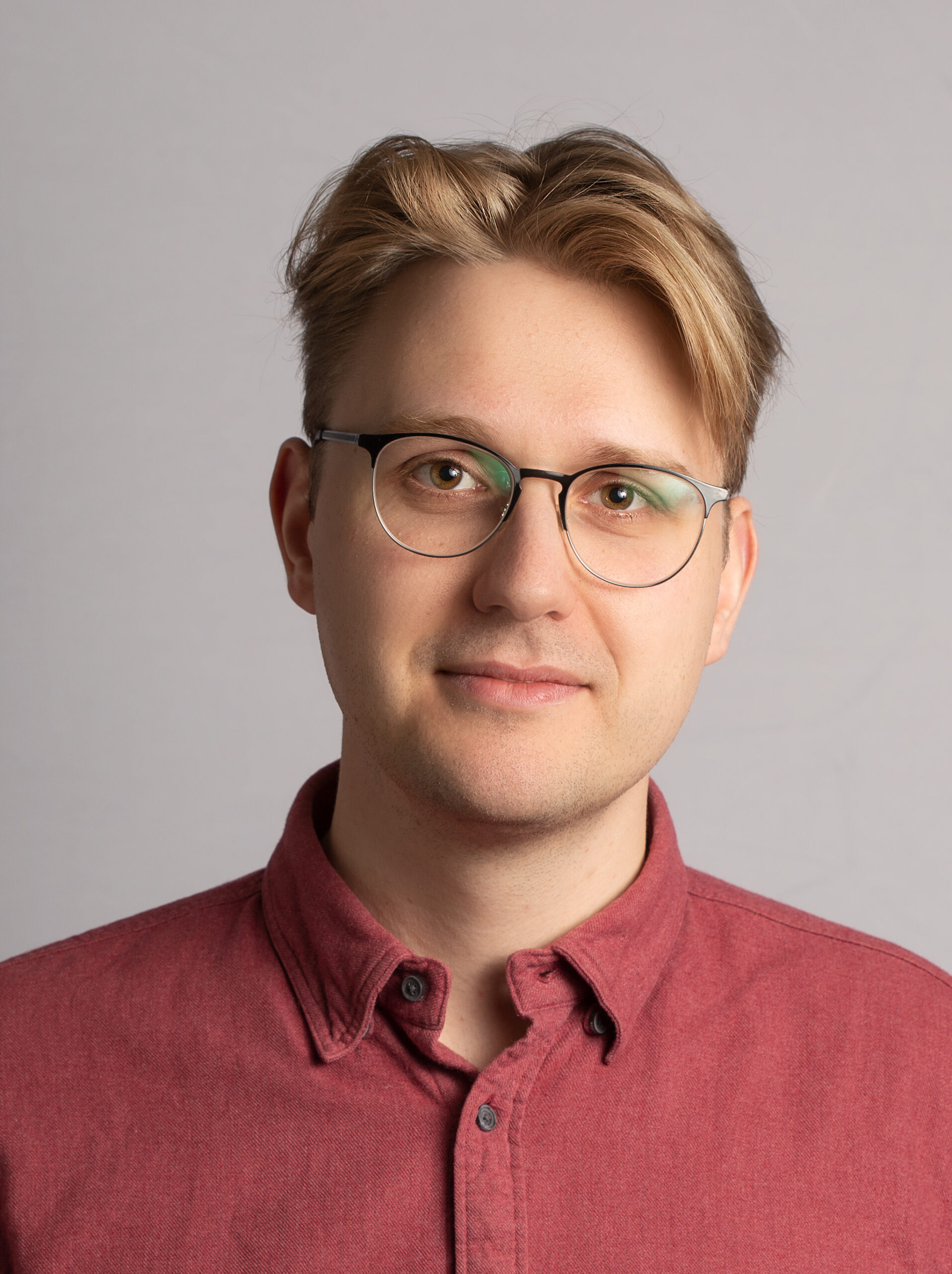
When asked if he thinks the trans community will feel underrepresented by a cisgendered gay man, Álfur says “I genuinely hope they won’t. I really hope not. We have Trans Iceland which is it’s own specialized organization that of course we work really closely with, and Intersex Iceland as well. This cooperation also leads to a healthy mixing of groups and ideas.”
“Samtökin ‘78 brings lots of different groups of people together in advocacy and collaboration. In many senses this is our strength.”
This time Álfur won the votes but “Arna who was running against me got many votes. We have to keep this conversation alive. S’78 has won a lot of battles for the trans community, alongside my trans siblings so to speak,” he mentions. As chairperson Álfur wants to continue working hand in hand with other queer rights advocates. “We’ve worked really closely with these organizations up until now and I don’t think there will be any changes to that. Samtökin ‘78 brings lots of different groups of people together in advocacy and collaboration. In many senses this is our strength.”
What progress needs to be made?
When asked what his biggest projects will be as the new chairperson, Álfur says one of the first is asylum seekers. “I think it’s inhumane the way asylum seekers are treated but on top of that LGBTQIA+ identities currently don’t count toward special status at all. We’ve had so many people that come to Samtökin who are asylum seekers that are fleeing because of their queerness or identities. [Giving these people asylum] would also improve Iceland and the status of all LGBTQIA+ people in Iceland. It’s just the humane thing to do and I think we should fight for that,” he says.
“I think it’s inhumane the way asylum seekers are treated but on top of that LGBTQIA+ identities currently don’t count toward special status at all.”
With various wars and climate change causing massive migration in the coming years, it will certainly be a large task for Iceland to face. Recently Iceland has looked to resettle 2,000 Ukrainians through measures in response to the ongoing conflict in Ukraine. The chair of the refugee committee in Iceland Stefán Vagn Stefánsson rallied support from municipalities to expedite the asylum process. This quick reaction is a noble thing for the Icelandic government to do, yet critics say it looks surprisingly different compared to other refugee situations.
Álfur points out that there’s no specific programs, laws, or fast tracks for asylum seekers that are fleeing home countries culturally inhospitable to their queerness. This is even showing up starkly in the current conflict with trans women being stopped at the western Ukrainian border because the gender marker on their passport reads “M.” The safety of these women, no matter what stage of their transition, is different than other asylum seekers fleeing out of the country.
Although his work as chairperson has just begun, Samtökin has responded to the crisis in with resources in Ukrainian on their landing page. The organization is offering assistance and counseling to displaced LGBTQIA+ Ukrainians as well as detailed information about their rights arriving in Iceland. (For more info on that, click here.)
The Icelandic healthcare system needs a Queer Eye makeover
In addition to refugee crisies and protections in the workplace Álfur says the healthcare system in Iceland is in need of funding for queer programs. It’s a funny thing to say when the entire healthcare system is falling apart at the seams with staff shortages and a lack of funding in general. However, Álfur says “we need to push for money within that for trans-specific healthcare. We just can’t get lost in the shuffle.” He adds: “I am doing advocacy. These are systemic problems, yes. We do not pay our healthcare workers enough and they don’t want to stay. That’s going to continue to be a problem and none of our other problems will be taken care of until that one is solved.”
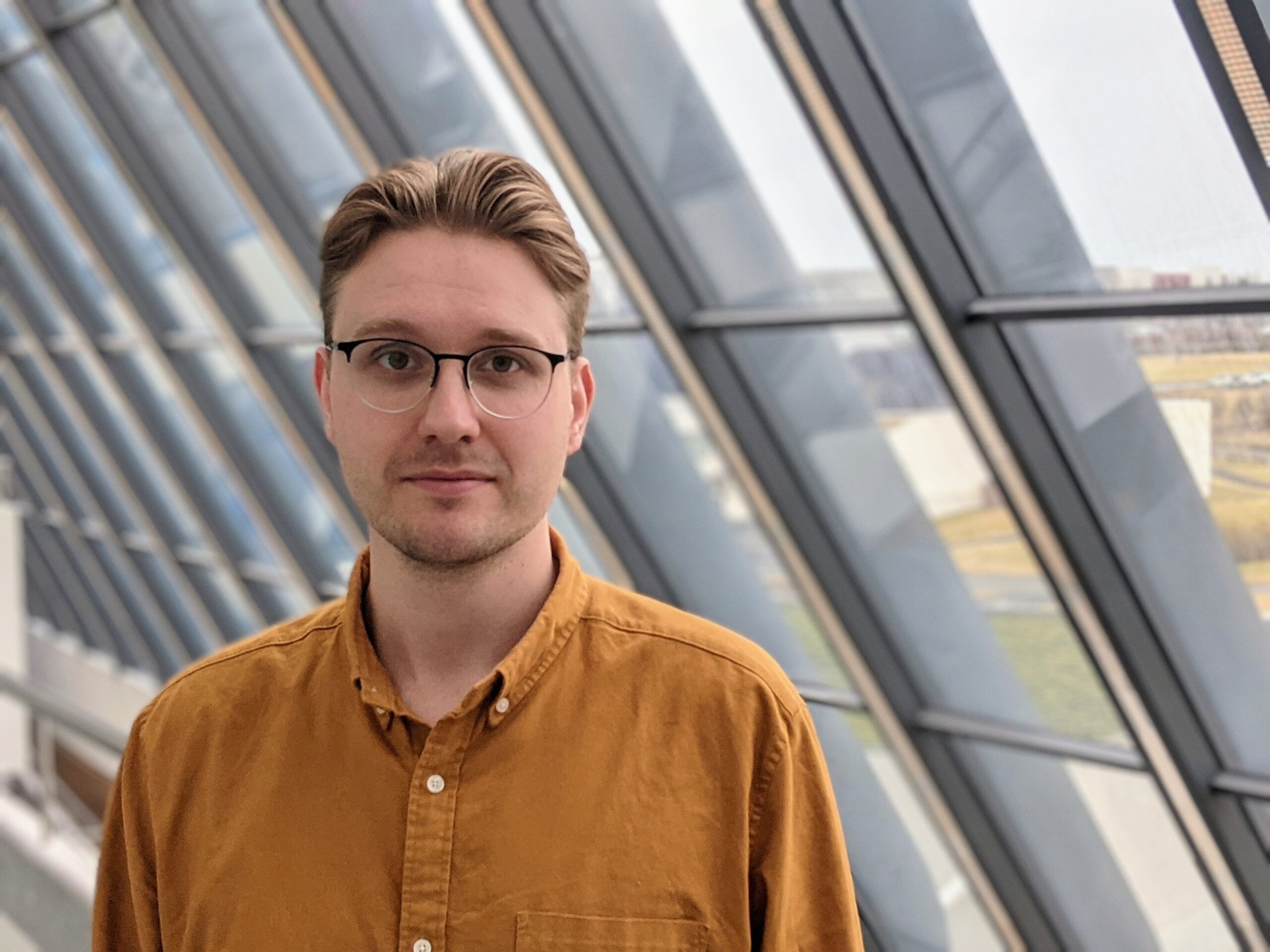
In his opinion, the wait for gender affirming healthcare services is still too long. “Since we’ve had this gender autonomy act the waiting list for trans medical care has become longer. I think that’s because people feel that the medical support they need hasn’t increased in accordance. Rightly so, they are entitled to medical support but the capacity hasn’t matched it,” he says, pointing out how even if parliament moves a step forward the healthcare system may still be a few steps behind, not ready to implement the freshly penned law.
“Within Iceland the gender autonomy act needs some corners smoothed out a bit. It was approved in 2019/2020 but there are still exemptions. For example, intersex kids have some conditions that are entirely social and not medical that allow surgical alterations. And that’s a permanent alteration on the body of a child at the age of 6 months. It’s just crazy,” he says.
Then there’s a long wait and some uncertainty when you finally do get into the program. “The trans teams for both adults and children are doing the best they can or are improving what they can. But we’ve also heard stories that they’re saying they’re improving things but that’s not what’s actually happening. We just need to have these conversations and be the middleman,” says Álfur.
“In the last two years, only four gender reassignment surgeries have been performed and people have waited more than 16 months.”
“Trans people are in a situation where they can’t really criticize the team that’s giving them their life-necessary healthcare. They don’t want to jeopardize their own position. I think that it’s important that we get people into the system as fast as we can but I also think we need to smooth out the timeline of care a bit. Of course, we’ve had covid, but we haven’t had a bottom surgery since December 2020. It’s a very long time for someone to wait. We just have to make sure we’re not lost in line when it comes to the healthcare system getting the assistance it needs. I mean, that might take 3 years. For a lot of people waiting for surgery for another 3 years is just not possible,” he clarifies.
These waiting periods and uncertain timelines can also disrupt the most sensitive time during a person’s transition, particularly if they’re going through puberty. “Eleven months is a long time in the life of a child who is undergoing unwelcome puberty. In the last two years, only four gender reassignment surgeries have been performed and people have waited more than 16 months.”
Álfur recognizes that it’s a small country and a small department of healthcare workers that are serving the queer community. He mentions that pointing out the ways the system needs to improve is paramount while also appreciating the overburdened staff trying their best day to day.
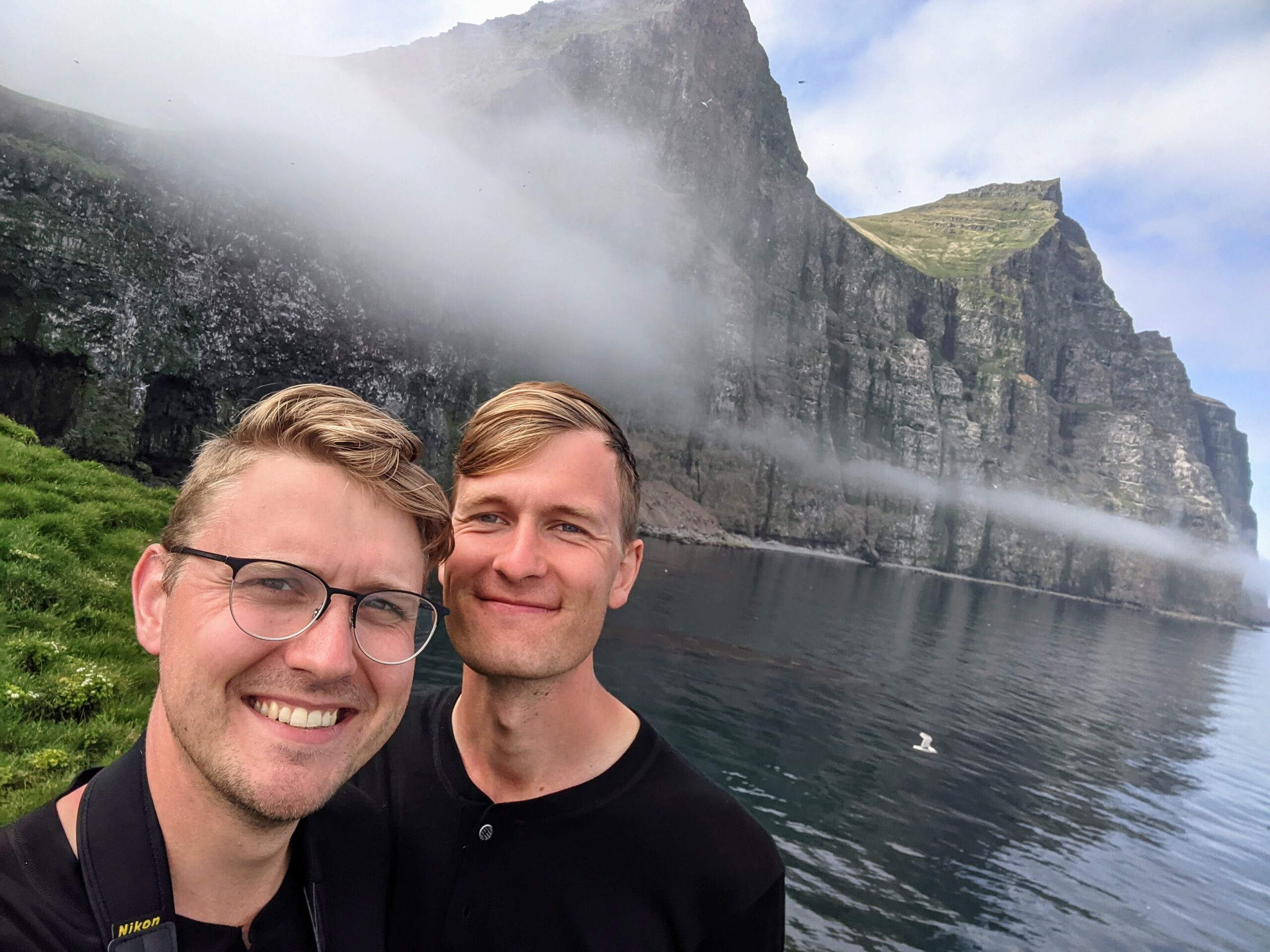
Has Iceland really acknowledged and atoned for its behavior during the AIDs crisis?
Approaching the topic with sensitivity, Álfur ponders if Iceland and Samtökin ‘78 have really addressed and apologized for behavior during the AIDs epidemic. He also thinks that maybe now is the time for this to be addressed. “We just have this unfinished business, so to speak, with the 1990s. I mean, the 90s in Iceland were just not an easy time for gays and lesbians in to say the least. It was a horror. I can’t describe it because I wasn’t there but we need to do something to close that circle, to resolve that history because it’s such a huge part of our history [as queer people and Icelanders].”
“The wounds need to be addressed. It’s a difficult thing to even put into words.”
When asked what closing the circle would mean, a monument, a ceremony, an apology, Álfur says “I don’t know what the answer is but I think it needs to be from within. I’m open to ideas. I think the people who were there during the crisis need to choose the best way to do it because it’s their life, they were there, their history. It’s only my history by proxy, not firsthand.”
In a way, covid has put the HIV crisis in a new light or at least helped reexamine its impact. With a society-wide virus it was easy to see how quick the medical community reacted to find a solution, in stark contrast to the AIDs pandemic response. When the delta variant broke out amongst gay men partying in Provincetown, Massachusetts, they were ready with excel spreadsheets of information and contact tracing. After all, this specific subset of a generation has dealt with viral infections in their community before.
Álfur agrees, saying “during the aids crisis it was a gay disease so no one really had to care, right? Only us. But when covid 19 broke out suddenly it was a society-wide problem. No one was going out, no one was going to school, no one was doing anything. It was “we’re just going to finish this together.” We also had infection shaming with covid, like with HIV. The stigmatization. I mean, it’s wild. These are viral diseases, of course, some people are going to get them. That’s how viral diseases work. So we see how society really did us wrong [back in the 90’s].”
Even talking about the AIDs crisis decades later is difficult. Álfur pauses reflecting on a recent speech. “Listening to Einar Þór Jónsson (the chair person of HIV Iceland), who was awarded the Honor of Samtökin ’78, I mean…. (reflects). HIV just left a serious scar on our society. Understandably. But that trauma hasn’t been addressed enough, I feel. And I can’t address it, cause it’s not my trauma. There’s an opportunity now though, and in years to come, to try to address that as a community. Samtökin ’78 and the queer community kind of pushed people out at the time and we need to address that. Atone for that.”
Then there’s the apology that we’ll probably never get from society or from government. Álfur concurs. “Society as a whole was hellish towards us. At Landsþing ((a conference for the queer community) recently I was listening to some of the descriptions. You tested positive for HIV. You were cast out from the gay community and from society at large. From your family. And then you’re trying to get home with your friends, who may also be positive, and you were beaten when you got out of your taxi because someone knew you had HIV or that you were gay.”
“HIV just left a serious scar on our society. Understandably. But that trauma hasn’t been addressed enough, I feel.”
“Even taking out the social stigma and everything, the fact that like society didn’t really do that much to stop the spread of HIV [that there wasn’t an immediate reaction from the medical community]. Luckily today we have amazing medications and it’s just a completely different infection compared to how it was 30 years ago. That’s something. I mean, in a way I think that’s why it’s time we reassess this and go over this. It’s a 40-year history of ups and downs,” he continues.
The queer community was hypersensitive to the ups and downs of covid and how those compared with life in the 80’s and 90’s. Of course science was at a different stage then (we didn’t have cheap, free QR code rapid tests on every corner for HIV) but looking back it’s hard not to see the gay community being the guniea pig of viral diseases and the knowledge that the scientific community gained from our suffering. Great doctors and scientists did eventually find treatment and therapies for HIV, but it’s hard not to notice the difference in response. One pandemic was left as a disease of the gays while the other stopped the global economy and moved mountains.
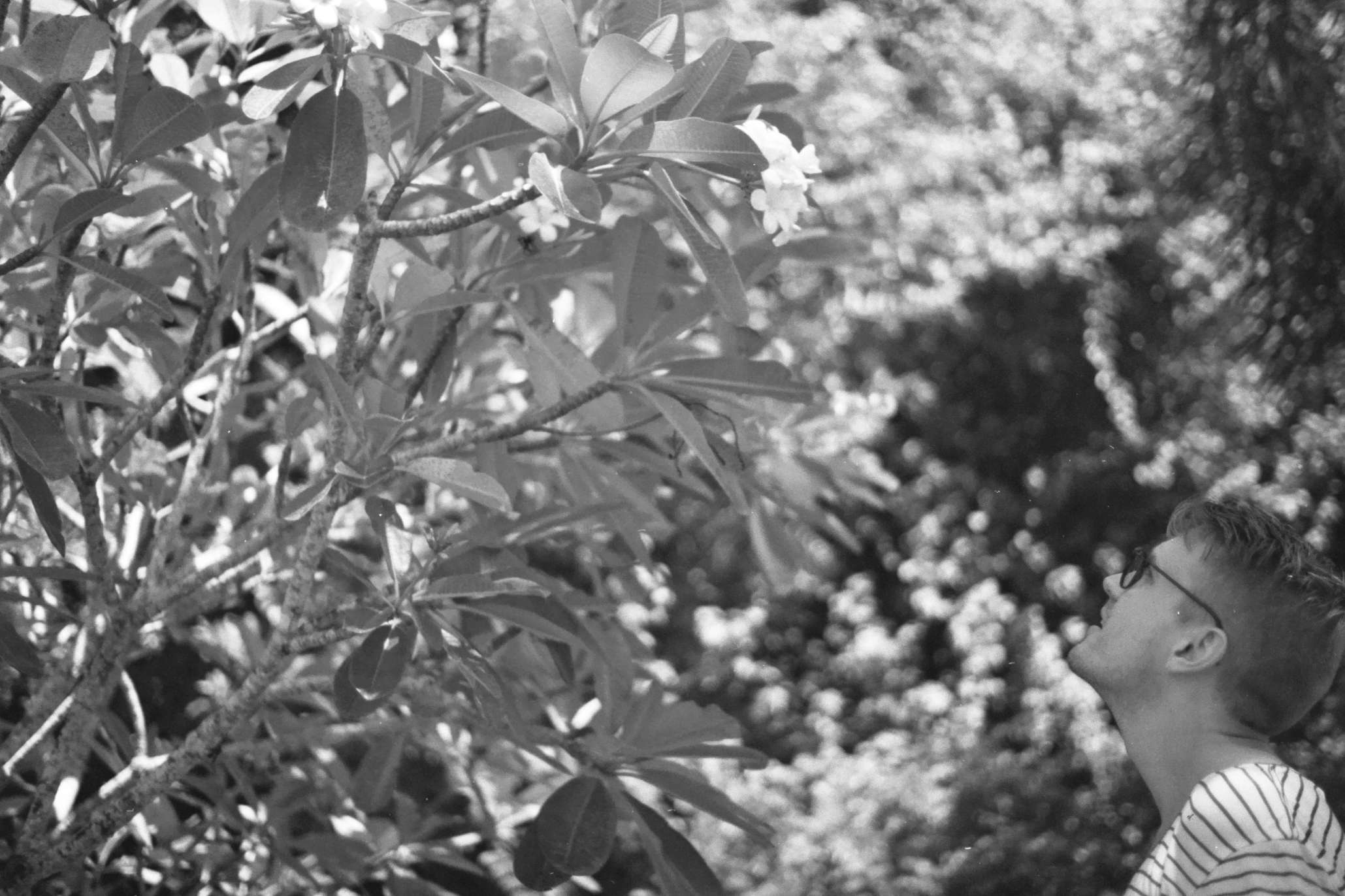
Álfur finishes by offering a possible way to address things. “We’ve had this church project where we’ve been gathering stories of LGBTQIA+ people’s experiences with the church. That’s completely on our grounds and coming from us. There’s something beautiful about that. Maybe we can take that sentiment and apply it. There’s just so much in our history and in the history of the organization that doesn’t need to be ‘closed’ as in ‘forgotten about’ but the history needs to be passed on. The wounds need to be addressed. It’s a difficult thing to even put into words,” Álfur says.
Got a spare mansion laying around?
One of the biggest pressing issues facing the new chairperson is Samtökin’s home. Over the past eight years or so since the organization moved into Suðurgata, they’ve been quickly running out of space. Álfur says they’re currently in the market for a new house. “We’re looking for a new building. Of course, we could never plunge ourselves into debt either. So it needs to be a good deal and today’s housing market is not really perfect for that (he laughs as house prices simultaneously spike). If someone out there has a building they want to sell us or if they have space where we could be part of a bigger building I think that’d be great. But the building we have has been too small for a long time.”
There’s also a balance the organization needs to have in terms of its public and private sides. Samtökin is a community organization that needs space for events and gatherings. It needs to be public and noticeable so that society knows we’re here and fighting for our rights. Yet it also needs a bit of privacy. Álfur clarifies “not everyone who comes to Samtökin is out or wants to be seen. We want both visibility and privacy. Kind of two floors would be best, to have the open public-facing part on the ground floor and then a large area for counseling rooms and stuff that could be more private. There are a lot of things to consider. It’s not an easy endeavor.”
The counseling room is at the heart of the space’s current problems. The organization has outgrown Suðurgata by far and is in need of more rooms to provide one of their most valuable services: psychological assistance, medical assistance, and legal assistance. “We only have one room for this consultation and advice center. It’s almost always completely booked. We get on average 4 appointments per day excluding weekends. Just for that one room in a shared space. It’s a difficult thing to manage,” he says. Adding, “we also used to get a hundred kids or more in the youth center that used to be there. We had to move that because you can’t fit that many people in there, overflowing out onto the street. We’re growing on all sides and I think it’s time our lovely home did too.”
“Kind of two floors would be best, to have the open public-facing part on the ground floor and then a large area for counseling rooms and stuff that could be more private.”
When it comes to the organization’s dream home, Álfur isn’t sure where it will be yet. “How we’re going to find all that, I’m not sure. I mean, I’d love for that to be my legacy. Finding a mansion for no money at all. We’re keeping our eyes and ears open, but like I said we’re picky as well. We need the right location, handicap accessibility. For instance, on Laugavegur, we were kind of in the back and it was difficult to get to in a wheelchair and we were kind of hidden,” he notes.
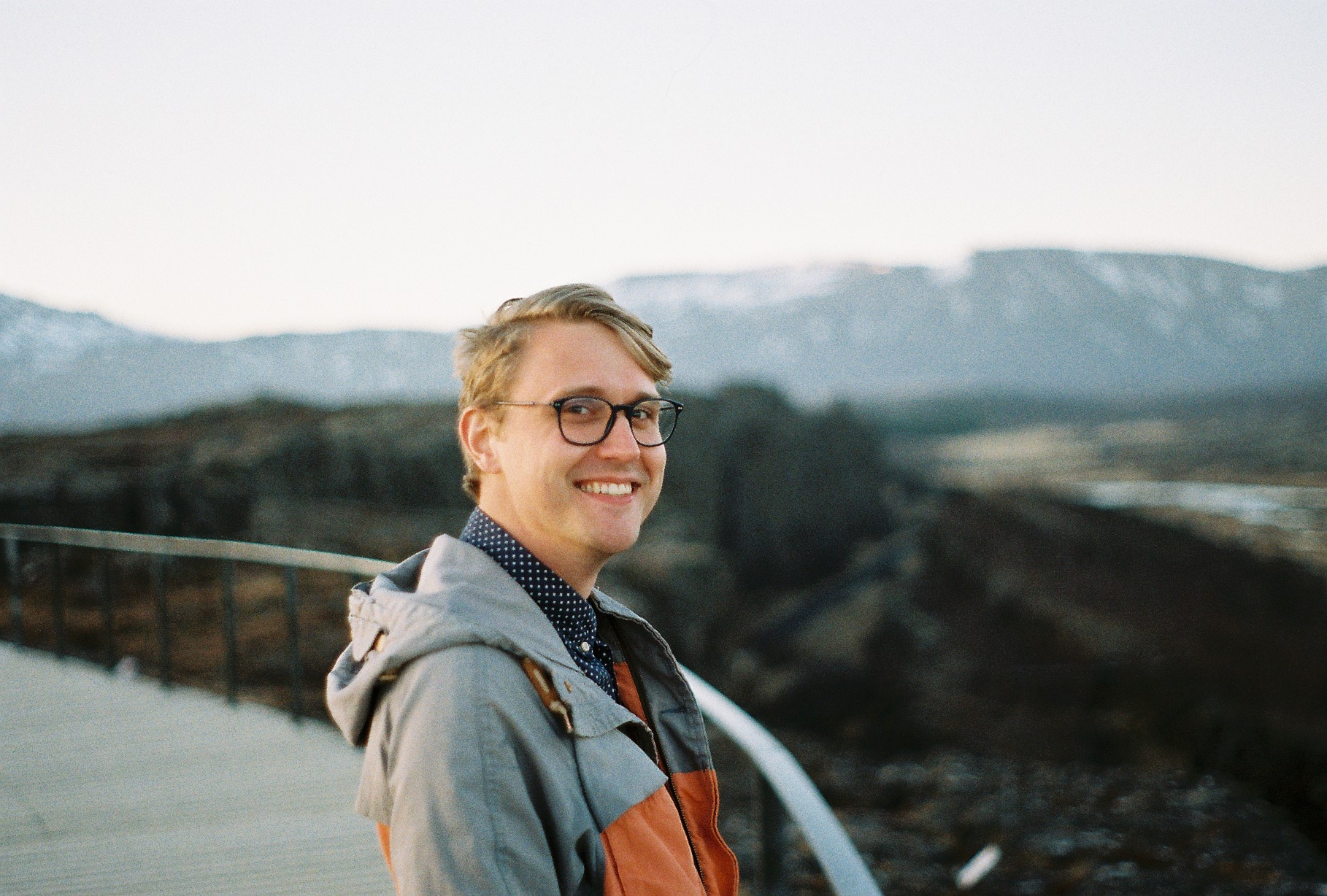
Álfur’s resolve to carry on the good fight
All in all, Álfur is excited to hit the ground running in his new role as chairperson. He’s excited to be jumping back in and taking Samtökin’s projects forward. “I thought that it would be good for me to get to know Samtökin ‘78 again in this way. We’ve always been a powerful organization, at first it was just volunteers and get-togethers and now we’re moving on to being very professional. It’s a huge change. Everything is in a much better place, we’ve just been working toward it. We provide the government with a firm but constructive restraint, we seek the legal remedies we deem necessary and we let ourselves be heard when we believe our rights have been violated. Such a struggle is never over and it is important that we maintain solidarity and stand up for those who want to divide us.”

